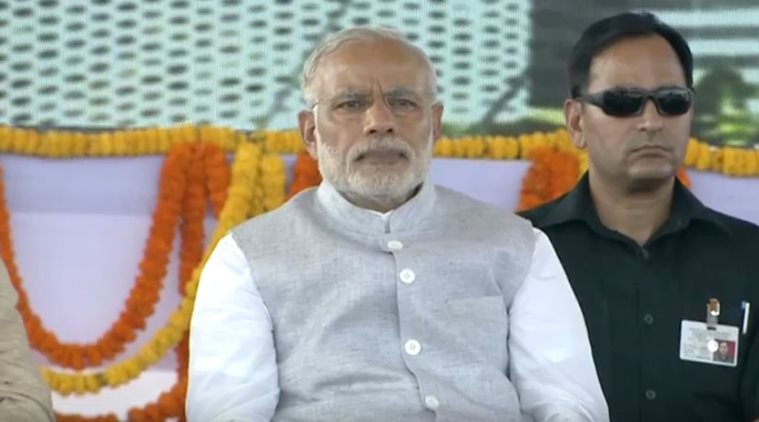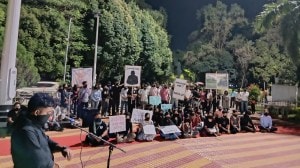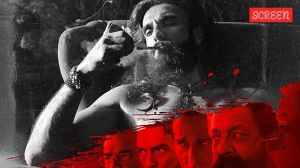Stay updated with the latest - Click here to follow us on Instagram
Narendra Modi’s J&K visit: Voices from two sides of LoC appeal for talks
The conference, part of a “Track 2” initiative organised by Centre for Dialogue and Reconciliation (CDR), was held from October 27 to 29.
 Days ahead of Narendra Modi’s visit to J&K, academics, businessmen, NGO representatives and journalists from both sides of LoC met and not only appealed to India and Pakistan to resume dialogue, but also pressed for inclusion of Kashmiris in the process.
Days ahead of Narendra Modi’s visit to J&K, academics, businessmen, NGO representatives and journalists from both sides of LoC met and not only appealed to India and Pakistan to resume dialogue, but also pressed for inclusion of Kashmiris in the process.
Days ahead of Prime Minister Narendra Modi’s visit to Jammu and Kashmir, academics, businessmen, NGO representatives and journalists from both sides of LoC met and not only appealed to India and Pakistan to resume dialogue, but also pressed for inclusion of Kashmiris in the process.
The conference, part of a “Track 2” initiative organised by Centre for Dialogue and Reconciliation (CDR), was held from October 27 to 29.
At a time of acrimonius disengagement between India and Pakistan, New Delhi’s go ahead to the conference is being seen as a positive sign. “The fact that we were allowed indicated that the two governments are not against people to people contact. Perhaps they are looking for straws they can pick up to restart talks,” said Sushobha Barve, CDR programmes director.
[related-post]
The home ministry had cleared visas for 17 participants from across the LoC, including from Gilgit-Baltistan. Eleven of them attended the conference.
Participants demanded that India and Pakistan “immediately” resume dialogue, hold “structured conversations with Kashmiris within and outside the legislative process” and asked for Kashmiri women to be included in the process.
“What came out of the meeting is less important than the fact that it took place,” said a senior Indian official.
Participants debated on resolution of the Kashmir issue, ceasefire violations and strengths and weaknesses of confidence-building mechanisms like Srinagar-Muzaffarabad bus service and cross LoC trade.
Clearances required to board the bus have remained an irritant, so has the condition that travellers must have a relative to visit on the other side. “Why shouldn’t Kashmiris be allowed to travel across five regions of their state as tourists?” a participant asked.
Those from Gilgit-Baltistan spoke of how they longed for the Kargil-Skardu bus service. There was also a demand for starting the proposed bus service from Jammu to Sialkot.
Cross LoC trade has acquired a reputation after a narcotics haul from a truck coming from Pakistan side. It has also been dubbed as India-Pakistan trade, as many items exchanged are sourced from outside Kashmir and traded at the LoC where no duties are levied.
In the absence of banking facilities, traders are using a medieval barter system. It is also an open secret that payments are made though hawala transactions in third countries. No phone calls are allowed from this side of Kashmir to the other and traders communicate mainly through VOIPs. Calling it “deaf, dumb and blind trade”, a participant said: “If it does not improve, it may not die, but it will become irrelevant”, he said.
Participants made a strong demand for sanctity of the 2003 ceasefire pact to be protected, and for the ceasefire to be formalized.
The meeting also brought up sharp differences, especially over the perceived domination of the Kashmiri Muslim voice in the struggle to define the state’s identity and insecurities of Jammu Muslims and Kashmiri Pandits.







